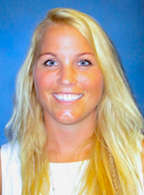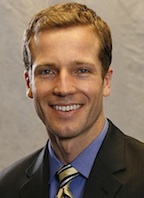Discipline Non-Dismissal
This policy covers the Radiation Oncology Residency Training Program Policy on non-dismissal administrative and academic actions. The UCSF Radiation Oncology Residency Training Program abides by the grievance, administrative and academic actions policies as set forth in the UCSF, Graduate Medical Education (GME) housestaff manual/policies.
I. INTRODUCTION
A. Definitions
Academic Deficiency: The terms “academic deficiency” and “deficiencies” mean unacceptable conduct or performance, in the professional and/or academic judgment of the chair, including failure to achieve, progress or maintain good standing in the GME training program, or achieve and/or maintain professional standards of conduct as stated below.
Chair: The term “chair” means the chair of the trainee’s specialty or subspecialty department, or his/her designee.
Clinical Competence Committee: The term “clinical competence committee” means a regularly constituted committee of the School of Medicine or department that reviews the academic performance of trainees, or a committee of faculty members specially selected by the committee for the purpose of reviewing the academic performance of trainees.
Days: The term “days” means calendar days based on UCSF’s administrative calendar.
Dean: The term “dean” means dean of the School of Medicine or his/her designee.
Dismiss or Dismissal: For the purposes of Part III.A.2 of this policy, the terms “dismiss” or “dismissal” mean expulsion from a GME Training Program.
GME Training Program: The terms “Graduate Medical Education training program” or “GME training program” refer to the second stage of medical education, during which medical school graduates are prepared for independent practice in a medical specialty. The foremost responsibility of the GME training program is to provide an organized education program with guidance and supervision of trainees, facilitating the trainees’ professional and personal development while ensuring safe and appropriate care for patients. Graduate Medical Education involves the development of clinical skills and professional competencies and the acquisition of detailed factual knowledge in a medical specialty. These professional standards of conduct include, but are not limited to, professionalism, honesty, punctuality, attendance, timeliness, proper hygiene, compliance with all applicable ethical standards and UCSF policies and procedures, an ability to work cooperatively and collegially with staff and with other health care professionals, and appropriate and professional interactions with patients and their families.
A trainee, as part of his or her GME training program, may have responsibilities in a hospital, other clinical setting, or research area. All such appointments, either initial or continuing, are dependent upon the trainee maintaining good standing in a GME training program. Dismissal from a GME training program will result in the Trainee’s automatic dismissal from any and all related appointments such as medical staff membership.
Medical Disciplinary Cause or Reason: The term “medical disciplinary cause or reason” applies to a trainee who holds a license from the State Medical Board of California and means that aspect of a licentiate’s competence or professional conduct that is reasonably likely to be detrimental to patient safety or to the delivery of patient care in accordance with Business and Professions Code section 805.
Non-Renewal of Appointment: A trainee’s appointment is for one year and is reviewed during the seventh month of the contract. If the chair determines that the trainee is not progressing satisfactorily, he/she has the option of not renewing the trainee’s contract
Program Director: The term “program director” means the GME training program director for the trainee’s specialty or subspecialty, or his or her designee.
Trainee: The term “trainee” refers to any individual appointed by the university’s School of Medicine to the titles of resident physician I-IX (title codes 2708, 2724), chief resident physician (title code 2725), resident physician/subspecialist IV-IX (title code 2726), other post-MD trainee II-IX (title codes 2732), where specified by campus guidelines, or any other GME title assigned by UCSF.
Vice Dean: The term “vice dean” refers to the vice dean for education in the School of Medicine.
B. Preamble
The procedures set forth below are designed to provide University of California San Francisco (UCSF) resident physicians and other post-MD trainees (hereinafter referred to as “trainees”) with an orderly means of resolving differences. These guidelines apply to all University-sponsored programs of Graduate Medical Education (GME). These guidelines shall be the exclusive remedy for appealing reviewable academic actions at UCSF. Deviation from these procedures that does not result in material prejudice to the trainee will not be grounds for invalidating the action taken.
Additional time in the GME training program or beyond the expiration of the Trainee’s appointment may be required to meet the educational objectives and certification requirements of the department or the specialty. The trainee will be notified in writing of any requirements for additional time. Funding for additional time extending beyond the original period of appointment will be permitted only at the discretion of University and upon written confirmation by the program director. Unless otherwise approved by the program director and chair, academic credit will be given only for full participation in the regular program.
At UCSF, the primary responsibility for remedial academic actions relating to Trainees and clinical training programs resides within the departments and the individual training programs. Therefore, academic and performance standards and methods of GME training and evaluation are to be determined by each department and/or program at the University. There may be variances regarding these standards among the various departments and programs.
Trainees and their supervisors are encouraged to discuss their concerns with one another and, if there are any disputes or disagreements, Trainees and their supervisors should make efforts to resolve them. The action(s) taken should be the one(s) that in the professional and/or academic judgment of the Chair best address the deficiencies and needs of the individual trainee and/or the GME training program. These actions are at the discretion of the department and UCSF and need not be progressive. The department and/or UCSF may select those action(s) described below which it deems appropriate.
As it pertains to any Housestaff member’s personal/employment record, an individual may request a correction or deletion of a record under this policy by submitting a written request to the director of the trainee’s clinical program. Within 30 days of receipt of a written request to amend or delete a record, the clinical director will either make the amendment or deletion or inform the individual in writing that the request has been denied.
Within 30 days of the clinical director’s response, the trainee may request that the dean or his/her designee review the request to amend or delete the record. The dean or his/her designee will respond to the individual in writing within 30 days from the receipt of the request to review. If the dean or his/her designee refuses to amend or delete the record, the Trainee shall have the right to enter into the record a statement setting forth the reasons for the trainee’s disagreement with the record.
II. ADMINISTRATIVE AND ACADEMIC ACTIONS - NON-DISMISSAL
A. Administrative Actions
1. Automatic Suspension
The Trainee will automatically be suspended from the GME training program for any of the following reasons:
- Failure to complete and maintain medical records as required by the medical center or site in accordance with the center’s/hospital’s medical staff bylaws and/or rules and regulations; or
- Failure to comply with state licensing requirements of the California State Medical Board; or
- Failure to obtain or maintain proper visa status; or
- Unexcused absence from the GME Training Program for five or more days.
The period of automatic suspension should not exceed 10 days; however, other forms of administrative or academic action may follow the period of automatic suspension.
The chair of the department of Radiation Oncology or the Radiation Oncology program director will promptly notify the trainee of his/her automatic suspension in writing. In addition, for subsections b, c, and d above, the trainee will be provided the facts upon which the suspension is based and a written notice of the intent to consider the trainee to have automatically resigned at the end of the suspension period (see Part II.A.2. below). The trainee may utilize the suspension period to rectify (a) or to respond to the notice of intent under (b), (c) or (d) which may include correcting the problem identified in (b) or (c). If the trainee is suspended under (a) and does not complete the medical records as required within the 10 day suspension period, other administrative or academic action may be instituted.
The trainee will not receive any academic credit during the period of automatic suspension. The trainee stipend will continue to be paid while the trainee is on automatic suspension status.
2. Automatic Resignation
Automatic resignation from the GME training program will not entitle the Trainee to the procedures contained in Part III of these Guidelines. Reasons for automatic resignation include:
• Failure to Provide Visa or License Verification:
Failure of the trainee to provide verification of an appropriate and currently valid visa or verification of current compliance with state licensing requirements of the state Medical Board of California during the 10-day automatic suspension period may result in the trainee’s automatic resignation from the GME training program.
• Absence Without Leave:
Trainees are expected to communicate directly with the program chair in the event he or she is unable to participate in the training program for a period of time in excess of 48 hours. The chair may grant a leave in times of exceptional circumstances. If a trainee is absent without leave for 5 days or more, he or she may be considered to have resigned voluntarily from the program unless he or she submits a written explanation of any absence taken without leave. This explanation must be received by the department within 10 days of the first day of absence without leave. The chairperson or designee will review the explanation and any materials submitted by the Trainee regarding the absence without leave in question and he or she will notify the Trainee of his/her decision within 10 days. Failure to respond to the written notice of intent or failure to explain adequately or to document the unexcused absence to the satisfaction of the chair or designee will result in the trainee’s automatic resignation from the GME training program. The trainee’s stipend will continue to be paid for 20 days after the absence, or, if a written explanation is received within the specified timeframe, the stipend will continue to be paid until the matter is resolved.
3. Leaves
Investigatory leave and conditional leave of absence are not intended to replace any leaves that a trainee may otherwise be entitled to under state or federal law, or UCSF policy.
• Investigatory Leave:
A chair or program director may place a trainee on investigatory leave in order to review or investigate allegations of deficiencies or in circumstances where the trainee may pose a threat to public, patient or staff health or safety or in situations where the trainee’s own health or safety may be compromised. The leave will be confirmed in writing, stating the reason(s) for and the expected duration of the leave. The alleged deficiency should be of a nature that warrants removing the trainee from the GME training program. The chair should, as soon as practicable under the circumstances, complete an investigation and either return the trainee to the program or initiate further action under these guidelines. The Trainee will be paid for the period of investigatory leave.
• Conditional Leave:
A conditional leave of absence from the GME training program may be provided only under exceptional circumstances, upon the trainee’s written request, and at the chair’s discretion. At the end of the conditional leave, the chair will determine whether to re-admit the trainee conditionally, unconditionally, on probation, or to seek the trainee’s dismissal pursuant to the procedures contained in these guidelines. The trainee will not be paid a stipend for the period of the conditional leave.
B. Non-Appealable Academic Actions
The following actions are non-reviewable and may or may not be used sequentially.
1. Counseling Letter
A counseling letter may be issued by the Program Director to a Trainee to address an academic or professional deficiency that needs to be remedied or improved. The purpose of a counseling letter is to describe a single instance of problematic behavior and to recommend actions to rectify the behavior. The Program Director will review the counseling letter with the Trainee. Failure to achieve immediate and/or sustained improvement, or a repetition of the conduct may lead to other disciplinary actions. These actions are determined by the professional and academic judgment of the Program Director and/or the Chair and need not be sequential. For the purposes of this policy and for responses to any inquiries, a counseling letter does not constitute a disciplinary action.
2. Notice of Concern
A notice of concern may be issued by the Program Director to a Trainee who is not performing satisfactorily. Notices of concern should be in writing and should describe the nature of the deficiency and any necessary remedial actions required on the part of the Trainee. A Letter of Concern is typically used when a pattern of problems emerges. The Program Director will review the notice of concern with the Trainee. Failure to achieve immediate and/or sustained improvement, or a repetition of the conduct may lead to additional actions. This action need not follow a letter of concern nor precede other academic actions described later in this document, and does not constitute a disciplinary action.
C. Academic Actions Appealable to the Department
The following actions are appealable to the Department’s Clinical Competence Committee.
1. Academic Probation
Trainees who are in jeopardy of not successfully completing the requirements of a GME training program may be placed on academic probation by the chair. Conditions of academic probation will be communicated to the trainee in writing and should include: a description of the reasons for the probation, any required remedial activity, and the specific time frame for the required remedial activity. Failure to correct the deficiency within the specified period of time may lead to an extension of the probationary period or to other academic actions. Probation should be used instead of a notice of concern when the underlying deficiency requires added oversight.
2. Suspension
The Chair may suspend the Trainee from part or all of the Trainee’s usual and regular assignments in the GME training program, including, but not limited to, clinical and/or didactic duties, when the removal of the Trainee from the clinical service is required for the best interests of patients, staff and/or Trainee. The suspension will be confirmed in writing, stating the reason(s) for the suspension and its duration. Suspension generally should not exceed sixty (60) calendar days. Suspension may be coupled with or followed by other academic actions. The Trainee’s stipend will continue to be paid while the Trainee is on suspension status.
3. Adverse Annual Evaluation
A Trainee may request a review by the Clinical Competence Committee for an annual evaluation that is adverse (overall unsatisfactory or marginal). Trainees will be notified by the Program Director of any overall marginal or unsatisfactory evaluations or letters sent to their specialty/subspecialty board.
4. Requirement That Trainee Must Repeat an Academic Year
A Trainee may be required to repeat an academic year in lieu of dismissal from the Program due to unsatisfactory progress in the training program or for other problems. The decision whether to permit the Trainee to repeat an academic year is at the sole discretion of the Program Director.
5. Denial of University Certificate of Completion
If the Program Director, in consultation with the Chair, decides not to award the Trainee a University Certificate, the Program Director will notify the Trainee as soon as reasonably practicable of this intent.
6. Change of Record
A Trainee may seek a correction or deletion to his/her personal/employee record by submitting a written request to the Chair or Program Director for a review by the Clinical Competence Committee. Within thirty (30) days of receipt of such a written request, the Clinical Competence Committee will recommend to the Chair or Program Director to either make the amendment or deletion, or inform the individual in writing that the request has been denied. If the Chair refuses to amend or delete the record, the Trainee shall have the right to enter into the record a statement setting forth the reasons for the Trainee’s disagreement with the record.
D. Clinical Competence Committee Appeal Procedures
The trainee will be notified as soon as reasonably possible that s/he has received an overall marginal or unsatisfactory annual evaluation, or is required to repeat the current academic year, or will not be granted a University Certificate. The trainee will also be provided with the name of and manner by which to contact the Clinical Competence Committee Chair if s/he desires to appeal the program’s decision or wishes a change of record. To request a review of the program’s decision regarding subsection II. C. (1)-(5) above by the Clinical Competence Committee, the trainee must, within 10 days from the date of the notice, provide chair or program director with a written statement detailing the reasons s/he believes s/he should not be required to repeat the academic year, should not have received an overall marginal or unsatisfactory evaluation, or should be granted a University Certificate of Completion of Training. The chair or program director will convene the Clinical Competence Committee to review the trainee’s statement within 10 days of its receipt. The trainee must appear at the Clinical Competence Committee hearing. Failure to appear in person will be deemed a voluntary dismissal of his/her complaint, acceptance of the academic action, and waiver of the right to appeal. While attorneys are not allowed in the hearing of the Clinical Competence Committee, the Trainee may be assisted by another person of his/her choice. The Clinical Competence Committee will orally notify the trainee of its decision within 3 days of its meeting, and provide the trainee a written decision within 10 days of the oral notification. The decision of the Clinical Competence Committee will be final.


